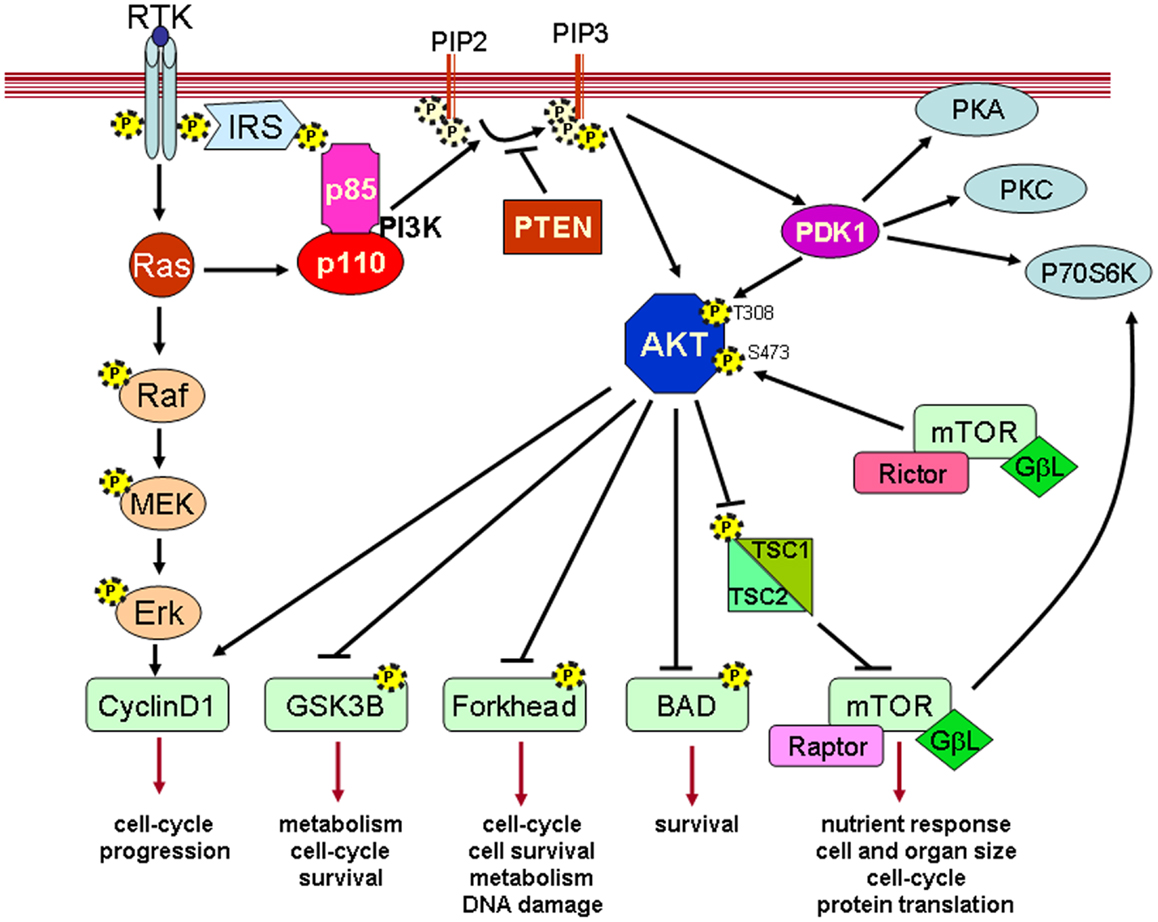

The PI3K/Akt pathway can be aberrantly activated through various mechanisms, including different genomic alterations, such as mutations of PIK3CA, phosphatase and tensin homolog (PTEN), Akt, TSC1, and mechanistic target of rapamycin (mTOR). The PI3K/Akt pathway also plays essential roles in the tumor environment, functioning in angiogenesis and inflammatory factor recruitment. 1 It controls hallmarks of cancer, including cell survival, metastasis and metabolism. The phosphoinositide 3-kinase (PI3K)/Akt signaling pathway is a major signaling pathway in various types of cancer. The information presented herein suggests that cascading inhibitors of the PI3K/Akt signaling pathway, either alone or in combination with other therapies, are the most effective treatment strategy for cancer. In this review, we discuss the roles of the PI3K/Akt pathway in various cancer phenotypes, review the current statuses of different PI3K/Akt inhibitors, and introduce combination therapies consisting of signaling inhibitors and conventional cancer therapies. Therefore, strategies involving pathway inhibitors and other cancer treatments in combination might solve the therapeutic dilemma. Moreover, pathway activation is accompanied by the development of therapeutic resistance. However, because oncogenic PI3K pathway activation occurs through various mechanisms, the clinical efficacies of these inhibitors are limited. Researchers have explored the use of some inhibitors targeting this pathway to block survival pathways. Based on accumulating evidence, strategies targeting major components of the pathway might provide new insights for cancer drug discovery.
PIP3 PATHWAY FULL
Examining the upstream and downstream nodes of this pathway could allow full elucidation of its function. The phosphatidylinositol 3-kinase (PI3K)/Akt pathway plays a crucial role in various cellular processes and is aberrantly activated in cancers, contributing to the occurrence and progression of tumors.


 0 kommentar(er)
0 kommentar(er)
